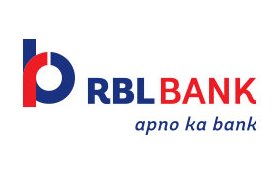
RBL Bank continued to witness strong traction in its loan book as it grew by 36.6% YoY led by robust growth of 42.5% in non-wholesale loan book. Deposits grew strong 31% YoY driven by 35% YoY growth in CASA deposits. While traction in savings account (SA) was modest at 11% YoY growth, current accounts (CA) surprised positively with 77% YoY growth. As a result, CASA ratio improved by 80 bps YoY to 24.5%. Going forward, we expect advances to grow at a CAGR of 35% over FY18-20E driven by healthy growth in retail advances.
Net interest income (NII) increased at a robust pace of 41% YoY (in line with our expectation) on the back of 41 bps YoY expansion in net interest margin (NIM) to 4.1%. The sustained NIM uptick was on account of MCLR reset and increase in share of high yielding retail portfolio. Non-interest income increased by 38% YoY mainly driven by 60% YoY jump in the core fee income (98% of total other income). While pre-provisioning profit increased by 48% YoY, net profit increased by 36% YoY due to 87% YoY increase in provisions. Going forward, we expect net profit to increase at a CAGR of 34% over FY18-20E driven by improving operating efficiency coupled with stable margin.
RBL Bank’s asset quality continues to remain stable as Gross non-performing asset (NPA) ratio stood flat sequential at 1.4% and Net NPA ratio declined marginally by 1 bp QoQ to 0.7%. Provision coverage ratio (PCR) improved further by 104 bps QoQ to 61.5% on the back of higher provisions. Notably, as per the management the bank’s exposure to IL&FS group is just ~Rs15cr (0.03% of loan book) in the form of a corporate guarantee secured with 100% cash collateral. Further, exposure to NBFC and real estate is largely towards better-rated companies where the management indicated that the risk of default is quite low. We expect asset quality to continue to show broadly stable trend (Gross/Net NPA ratios of 1.5%/0.8% by FY20E) given the bank’s strong risk management practices
RBL Bank continued to deliver a solid performance across most operating metrics in Q2FY19. We believe RBL bank is the best placed in new private banking space given its capable management, steady asset quality, improving business mix and high earnings growth. We project business to grow at a CAGR of 32% over FY18-20E with gradual rise in profitability at RBL Bank (14.3% – RoE and 1.3% – RoA by FY20E). Hence, we continue to maintain our Accumulate rating on the stock with a target price of Rs591 (P/ABV of 3.2x for FY20E).
Analyst: Kaushal Patel
Dion Global Solutions Ltd., INH100002771
For Disclosures and Disclaimers: RBL Bank – https://goo.gl/6PD9Qd
UPL is a leading global manufacturer of crop protection products with strong presence in off-patent market of US and Europe. The company has presence across agri-input value chain from seeds to post-harvest chemicals. It has historically focused on acquisitions of smaller companies and brands to achieve higher growth than the market. UPL has achieved healthy revenue CAGR of 22% over FY12-18, with stable EBITDA at 17-20%, despite widespread changes in regional weather patterns or swings in commodity prices and currencies.
UPL’s reported revenue grew by 13% YoY to Rs4257cr in 2QFY19 led by 8% volume growth. EBITDA grew by 17% YoY to Rs839cr, while EBITDA margin expanded 60bps YoY to 19.7%. Consequently, PAT grew 12% YoY to Rs270cr. Management expects the second half to be equally strong, given the emerging opportunities in exports due to trade war between the US and China. Management has maintained its growth (10-12%) and margins guidance.
Recently UPL has announced acquisition of Arysta. Management has guided potential US$200+ mn of synergy benefits from the proposed transaction. We believe that the businesses complement each other in terms of: geographical mix as UPL gains wider market in Europe; segment mix with higher share of bio solutions and seed treatment; and product mix with higher share of value-added / specialty products. Further, synergies include backward integration to produce active ingredients and formulations for Arysta, rationalization of R&D expenses, economies of scale in procurement and distribution and reduction in corporate overheads. Further, UPL may be able to reduce distribution costs by optimizing warehousing and logistics, and leveraging its enhanced bargaining power with distributors.
Highly leveraged balance sheet due to Arysta acquisition, higher exposure to forex risk and cyclical & seasonal nature of the business are the key risks factors for UPL. However, UPL’s seasonality risk is mitigated to an extent due to geographical reach.
Management focus on new product launches across geographies & foray into biologics segment bode well for UPL. UPL is well-positioned to post stronger growth driven by a pick-up in demand amid better monsoon and healthy performance of the new and existing product portfolio. We believe the recent acquisition of Arysta life Science will create significant strategic value for UPL in the long run. We expect EBITDA/PAT to grow at a strong CAGR of 24/31% over FY18-20E led by backward integration & shift in product mix towards biologics. Continuous improvement in global market share of UPL will further facilitate the momentum. We have a BUY rating for the stock with TP of Rs790 based on 15x P/E FY20E.
Analyst: Anil R
Geojit Financial Services Ltd., INH200000345
For Disclosures and Disclaimers: UPL Ltd – https://goo.gl/KVYn2q
InterGlobe Aviation Ltd (Indigo) is one of the most efficient low cost carriers (LCC) with a market share of ~40% in Indian aviation sector. Indigo operates 189 Aircrafts which includes 177 Airbus A320 and 12 ATRs, providing services to over 57 domestic and 9 international destinations. Indigo has cost leadership among its peers largely attributed to simple strategy of use of single format fuel efficient A320 aircraft, high aircraft utilisation rates and low distribution cost. Expanding market presence through robust fleet addition and firming up its regional connectivity plans augurs well.
India is one of the fastest-growing air travel market globally supported by strong economic growth, expansion of middle class, tourism, rail travel substitution, improvement in aviation infrastructure and favorable regulatory environment. Further, the role played by low cost carrier (LCCs) to make air travel affordable was another key factor leading to strong growth in Indian Aviation sector. Indigo is best positioned to benefit from this structural growth, with its cost and market leadership, aggressive fleet expansion, continued focus on high-density routes and improving aircraft utilization which is expected to help them in gaining market share. Indigo’s passenger traffic grew by robust 28% CAGR versus industry growth of 15% CAGR, over FY14-FY18 thereby helping it to consistently improve its market share to ~40% in FY 2018 from 17.6% in FY 2011.
Despite robust passenger growth of 33% YoY in Q2FY19, Indigo reported a loss of Rs652cr on the PAT level largely on account of higher fuel cost which increased by 84% YoY, forex loss of Rs335cr and weak fares. The yields declined by 9.9% YoY. The ASK (average seat kilometre) grew by robust 29% YoY, with resolution of engine issues. During this quarter, Indigo has added 20 new aircrafts of which 17 were A320neos & 3 were ATR aircrafts. Among domestic aviation players, Indigo has better balance sheet position. Currently, Indigo is leveraging this favorable position by aggressive capacity expansion for gaining market share. Management has increased ASK guidance to 30% from 25% earlier for FY19E. We factor ASK to grow by 25% for FY19E and factor revenue to grow by 26% CAGR over FY18-FY20E. We expect earnings to pick-up in H2FY19 led by pass through of higher fuel cost and cost rationalization.
The impact seen in Q2FY19 is likely to continue in the near term given higher competition. However, we expect marginal relief in the coming quarters given festive season and rationalisation of ticket prices. We remain constructive on Indigo in the long term considering Indigo’s fuel efficient fleets, market leadership position, aggressive capacity addition and healthy balance sheet. Considering this we value Indigo at a P/E multiple of 20x and 6x FY20E EV/ EBITDA, with a target price of Rs1018 and we downgrade to Accumulate from BUY.
Analyst: Anil R
Geojit Financial Services Ltd., INH200000345
For Disclosures and Disclaimers: Indigo – https://goo.gl/fPkTck
Cadila Healthcare (Cadila) is India’s leading vertically integrated pharmaceutical company and is the fourth largest in the country. It manufactures finished dosage forms, active pharmaceutical ingredients, animal healthcare products and wellness products.
Cadila reported a revenue of Rs2,961crs which is a 8% YoY decrease, with EBITDA and PAT de- growing by 20% and 17% YoY respectively. This is due to poor performance from the US market which exhibited a decline of 20% YoY (up 7% QoQ), primarily attributed to loss of market share for gLialda after Teva and Mylan entered the competition. Further, management is expecting one more player in this space over the next few quarters. Sharp rise in R&D expenditures led to a decline in the EBITDA margins in Q2FY19 by 300bps (YoY basis). Weak performance from European and API segment also contributed to the muted quarter.
However, Cadila’s strong domestic leadership position in the anti-infective, gastro intestinal and respiratory therapy areas bodes well for them. We also believe that suspension market remains a niche opportunity for them. In the US, they will scale up its market share of gToprol XL in the coming months. 2HFY19 might also see the full impact of the Cadila’s launch of gToprol XL where management has guided for a 10% plus market share in the coming months. On the margin front, 2HFY19 will see the full benefit from the switching of gAsacol hd to Cadila’s own product portfolio in the market. It is guided that gAsacol hd is not expected to see further competition in the next 2 years and will ramp up their sales in the US market.
Cadila will be launching ~50 ANDAs in the US market in FY19, with a few high-value products, going to drive the growth momentum in the current fiscal year. The key launch during FY18-20 would be gAndrogel and transdermals (expected to add revenues from FY20). We believe that this will improve their margins going forward and bring back the stability. Cadila has also acquired 51% stake in Dehradun-based Windlas Healthcare in 2018, which gives them access to their USFDA-approved facility, further bolstering capacity. More details will be realised later.
At CMP, the stock is trading at P/E of 17x on FY20E EPS. Considering their strong financials, low valuations and aggressive expansion plans we believe that Cadila Healthcare will continue its steadfast growth rate and recommends “BUY” based on 18x FY20E EPS with a target price of Rs405.
Analyst: Dilish K Daniel
Geojit Financial Services Ltd., INH200000345
For Disclosures and Disclaimers: Cadila – https://goo.gl/Cjoxea
